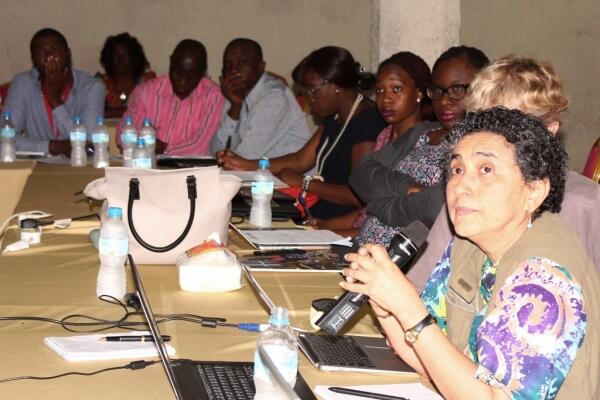The report of the 2nd Multi-Year Annual Survey to monitor programme effectiveness of the DFID-supported 'Improving Reproductive Maternal and Newborn Health' (IRMNH) programme in Sierra Leone, was shared with partners on August 10. The programme is jointly implemented by UNFPA, UNICEF, Marie Stopes Sierra Leone and other partners. The baseline survey was conducted in 2014, both commissioned by UNFPA.
The 2016 study was conducted by a consortium of researchers led by hera, a right to health and development agency. The researchers used both quantitative and qualitative methods to obtain information from participants, involving a household survey of the effectiveness of demand and supply side interventions for young people, health facility survey to assess quality of care, and qualitative study of barriers to accessing Reproductive Health Services.
Key findings of the survey include an 11% increase in condom use among males, 5% increase in contraceptive prevalence among young people (10-24) and three times more Service Delivery Points, complying with the three criteria for ‘youth friendly services’, compared to the last survey result.
Finance was considered by most of the interviewees in the 2014 survey as the main barrier to access health services; and the 2016 survey also confirmed that payments were made for health services to health service providers.
Finance was considered by most of the interviewees in the 2014 survey as the main barrier to access health services; and the 2016 survey also confirmed that payments were made for health services to health service providers.
The key expected impact and outcome of the project are to reduce maternal and newborn mortality, and increase utilisation of quality Family Panning, Reproductive Maternal and Newborn Health services, especially by young people in Sierra Leone.


